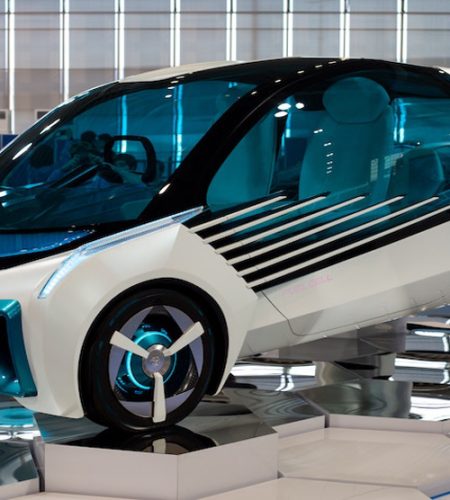A dodgy consultants’ report by ACIL Allen gave rise to Australia’s failing hydrogen strategy and a raft of public subsidies. It all means climate action is delayed. Australia Institute chief economist Rod Campbell blows away the exaggerations of the mooted ‘miracle fuel’.

What’s the go with hydrogen? Like socks and sex, there’s loads of it about, but it still doesn’t push my car around.
Is it all hype?
One person whose car it does push around is Australia’s former Chief Scientist Alan Finkel, who was the lead author of the 2018 National Hydrogen Strategy.
Finkel told a recent podcast all about his hydrogen car and also that he’d changed his views on the future of hydrogen. Back then things looked good, but now not so much:
When we produced the National Hydrogen Strategy in 2018, I personally was motivated by the Japanese National Hydrogen Strategy that came out in December 2017. It was full of enormous projections of what the uptake would be for vehicles and for importing hydrogen and ammonia [with projections] of millions of tonnes per year by the time 2030 came.
Finkel is right that he put enormous weight on the plans of the Japanese Government. He wrote to Australia’s energy ministers in 2018 regarding a global-scale hydrogen industry:
I ask myself “Why now?” given that the idea of a hydrogen economy has been seriously and frequently proposed since 1972. The answer is Japan’s commitment to be a large-scale enduring customer…
Hydrogen – suddenly the new black
Because of Japan, Finkel’s strategy urged support for all aspects of hydrogen development, including from fossil fuels. There were “risks in not acting early” if Australia was to “reap rewards for the economy, the community, and the environment to 2030 and beyond.”
Since then, hydrogen projects have sprung up like mushrooms all over the country, including one based on brown coal. When most of them turn out to be boondoggles, will we be able to blame the pesky Tokyo bureaucrats as Finkel suggests?
Or should perhaps we look a little closer to home?
Let’s look first at Finkel’s claim that Japan’s 2017 projections were “just enormous”. This is wrong, as the Hydrogen Strategy Group that Finkel himself chaired noted in 2018:
Japan will import hydrogen from low-emission sources at the right price, made from fossil fuels with CCS or from renewable electricity and electrolysis. Experience will be gained by a 2030 import target of 300,000 tonnes of hydrogen.
This quote refers to the Japanese Government’s Basic Hydrogen Strategy, which states:
Japan will develop commercial-scale supply chains by around 2030 to procure 300,000 tons of hydrogen annually. (p20)
So the Japanese policy was not for millions of tonnes by 2030, but for hundreds of thousands of tonnes “by around 2030”.
Enter fossil consultants ACIL Allen
The problem is not that Finkel made a mistake on a podcast in 2023. The problem is that in 2018 he produced the National Hydrogen Strategy based not on the policy of the Japanese Government, but on modeling conducted by ACIL Allen, consultants that work regularly for Australia’s gas and coal industries.
In ACIL’s 2018 report commissioned by the Australian Renewable Energy Agency (ARENA), they estimated 2030 Japanese hydrogen demand at between 875,000 tonnes and 3.9 million tonnes, as highlighted in the table below:
ACIL’s Japan 2030 estimates were between three and eleven times greater than the stated Japanese Government policy of 300,000 tonnes. ACIL’s Korean estimates are similarly overblown. Korean Government estimates were for 170,000 tonnes per year by 2030, as noted by Finkel’s Hydrogen Strategy Group (p9).
ACIL knew that their numbers were far higher than Japanese or Korean government policy. They wrote:
The projections for hydrogen demand in Japan under the scenarios are well above the current estimates outlined in the Japanese METI’s Strategic Roadmap for Hydrogen and Fuel Cells. This merely represents an alternative view of what the future demand for hydrogen might be under different circumstances.
Why ACIL emphasized its “alternative view” of demand rather than the Japanese government’s stated policy is never explained.
Regardless, it was ACIL’s numbers, not the Japanese or Korean Governments’, which Finkel used to develop the National Hydrogen Strategy. It was ACIL’s numbers that the Hydrogen Strategy Group used to claim that “with the right policy settings, Australian hydrogen exports could contribute $1.7 billion and provide 2,800 jobs by 2030”.
Stalking horse for brown coal and gas
The “right policy settings”, of course, include using Victoria’s “vast brown coal reserves”, Queensland and NSW’s black coal reserves, and WA and NT’s “extensive” natural gas resources to make “clean” hydrogen for export and prolonging the use of fossil gas in Australia by mixing hydrogen into it.
Australia still has that hydrogen strategy, although it is under review.
To be fair to Finkel, he wasn’t alone in using the dodgy ACIL numbers to hype up hydrogen. As Australia Institute research showed in 2019, ACIL’s numbers were also used in the CSIRO’s National Hydrogen Roadmap, Federal Labor’s 2019 National Hydrogen Plan, South Australia’s Hydrogen Action Plan and the Queensland Hydrogen Industry Strategy.
To put it plainly, the Chief Scientist and other senior officials developed a significant energy policy based on numbers that they knew or should have known, were heavily exaggerated.
Who carries the can?
Five years and goodness knows how many bad investment decisions later, the demand assumed in the development of the Hydrogen Strategy has not eventuated. And who takes responsibility for this? Certainly not Finkel or the guns for hire at ACIL Allen.
No, Finkel throws the Japanese Government under the (presumably hydrogen-powered) bus, by blaming his recollection of their forecasts.
In many ways, this is a very 2023 story. Like the PwC scandals, conflicted consultants provided inflated numbers to policymakers who were unable or unwilling to critically review the work of the consultants. The government was told what it wanted to hear – that hydrogen would boom and fossil fuel industries are part of it.
Alan Finkel could have spent his tenure as Chief Scientist telling the Australian Government to take more urgent climate action, to stop new coal mines, to stop new gas projects. He could have reduced the hype around hydrogen and steered Australia away from carbon capture and storage and other tech trinkets that delay serious climate action.
Alas, it was not to be. Something he can ponder on the long drives that he told listeners he must take from Melbourne’s leafy South Yarra to fill up his hydrogen car in more industrial Altona.
PwC and the Adani mine triple dip. A conflict of interest? Surely not
Subscribe to our email newsletter to get the latest posts delivered right to your email.




Comments